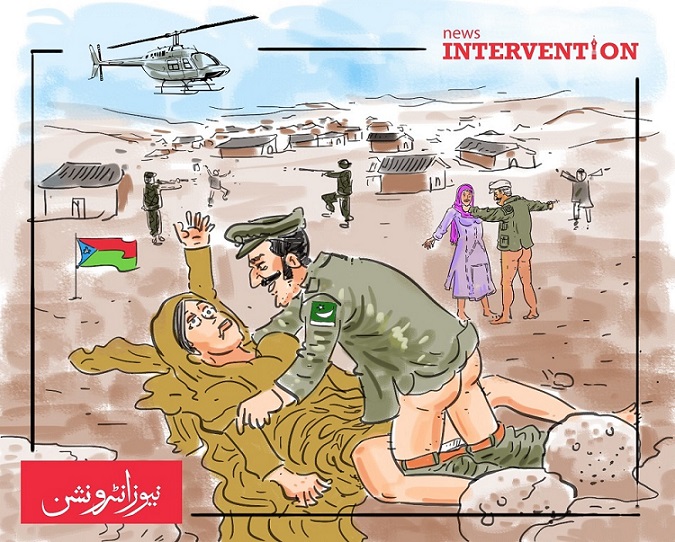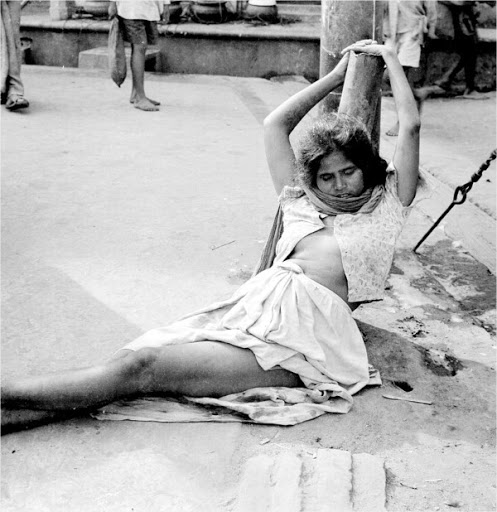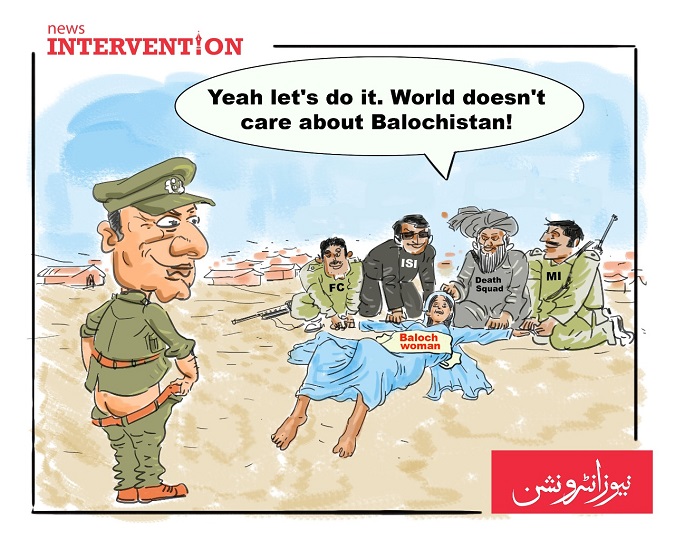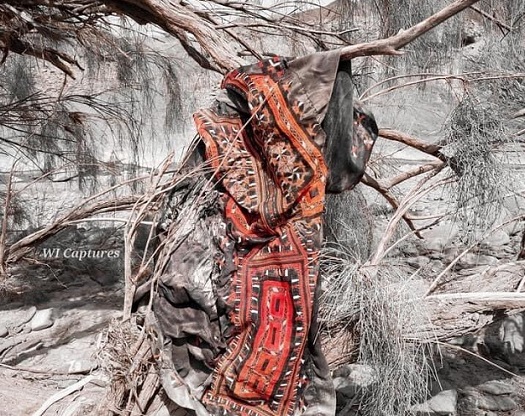What do Pakistani men in military fatigues brandishing sophisticated guns do in Balochistan? They rape. Yes, you read it right. Rape has always been a lethal weapon of the Pakistan Army, one that it has tried and tested several times. They used it on East Pakistan (now Bangladesh) and have now unleashed against Balochistan.
Scores of Baloch women, young girls and boys are sexually assaulted and abducted to be kept as sex slaves in cantonments and are made to ‘serve’ Pakistani military personnel and the Chinese contractors of CPEC (China-Pakistan Economic Corridor). These military cantonments in the CPEC zone double up as rape bases.
During the last fortnight Pakistan Army regulars and their propped stooges Death Squad members raided the Keelkor area of Panjgur district. The sole objective of this raid was to subjugate the hapless Baloch people. And what better way to achieve this objective than to rape all the women! The thinking in Rawalpindi is that a community whose women have been ‘violated’ would easily concede to their demands.
Most of the men in Keelkor villages had already been abducted by the Pakistani Frontier Corps (FC) and ISI, and the only people left were old men, women, young boys and girls. What followed would put anybody to shame.

All the women across Keelkor villages were rounded up and raped by Pakistan Army soldiers and the members of Death Squads. Girls as young as seven-eight years were not spared either. There young girls and their mothers were raped simultaneously, in front of each other. Local Baloch people say this widespread sexual assault took place in seven Keelkor villages of the district Panjgur.
But why would Pakistanis suddenly raid these Keelkor villages and gang rape all the women? Well, this is not a sudden occurrence. Pakistanis follow a satanic war doctrine, where sexual assault is used as a deadly psychological tool against warring population.
During the 1971 Bangladesh Liberation War the soldiers of Pakistan Army had direct orders from Rawalpindi to rape ALL the Bengali women across Bangladesh. Every day the soldiers were asked about the rape count in their barracks. Rawalpindi’s Panjabi generals thought that the number of Bengalis laying down their arms would be in direct proportion to the Bangladeshi women being raped by Pakistani soldiers. That the Bengalis never surrendered and Bangladesh attained independence is history.

Pakistanis, however, never learnt from their own history. And this happened largely because all these Pakistani soldiers were never tried, nor shamed for their despicable war crimes committed on those unlucky Bengali women of Bangladesh. This emboldened Rawalpindi. The stoic silence of the world meant that the 93,000 Pakistani POWs (prisoners of war), after being sent back by the then Indian government as part of Shimla Agreement, began their atrocities with renewed vigour, this time in Balochistan. Since 1973 till 1977-78 the Pakistan Army regulars were looting, killing and raping across Balochistan with impunity. After sexual assaults the Baloch women were taken away to be sold in Heera Mandi, Lahore’s infamous red light area.
There was a slight change in Pakistan’s gambit in Balochistan. Smarting under the ignominious defeat of 1971 Bangladesh war Rawalpindi has now learnt to keep their nefarious activities in Balochistan below the radar. So the first thing was to ban independent media from visiting far flung areas of Balochistan, similarly international human rights organisations and women rights groups were stopped from talking to Baloch women. Any journalist who goes inside Balochistan needs to take permit from Pakistan Army and/or is taken on a guided tour as embedded journalists. Internet and mobile connectivity is non-existent while the ‘rape-raids’ are on. Adequate care is taken that news from far flung Baloch villages do not leak out.
Yet, the Baloch have refused to give up. Over the last decade, freedom struggle in Balochistan has taken a decisive turn. Baloch sarmachaars (freedom fighters) have intensified their revolutionary activities against the loot of Baloch resources in the name of CPEC (China-Pakistan Economic Corridor) and are fighting Pakistani forces with grit and determination.
Pakistani soldiers despite their sophisticated weapons, gunship helicopters and fighter jets are not able to match up the raw courage of Baloch sarmachaars. It’s in this backdrop that the Panjabi generals of Rawalpindi have tried to repeat their Bangladesh misadventure in Balochistan.
And thus, the body of Baloch woman has once again become the battleground for Pakistan Army.

During the attack on Keelkor villages the area around Panjgur was cordoned off, internet and mobile connectivity was shut down. The vulnerable Baloch women and girls were paraded, raped and humiliated. During one of such ‘rape-raid’ an old Baloch father, Peeri, stood up to save his daughter. Bereft of any weapons he fought the heavily armed Pakistani soldiers with bare hands but was soon overpowered and shot dead. Peeri’s daughter was gang raped alongside the dead body of her father.
Noor Jaan was another proud Baloch father who willingly chose to give up his life when asked by the Paki soldiers to send his daughter to the army cantonment. The story of sexual assault of eleven year old Amir Murad by the Pakistani soldiers at Hoshap proves young Baloch boys are also vulnerable.
Similar ‘rape-raids’ were reported in 2017 at Mashkay in Awaran district as well, wherein twelve Baloch families are still in the custody of Pakistani cantonment. In January this year four women of Akeem Baloch’s family were gang raped by Death Squad members at Mashkay.
The list of such cases may be mere statistics for the champions of human rights and women rights’ activists but shouldn’t the civilized world question Rawalpindi? The world looked the other way when Pakistan illegally and forcibly captured Balochistan, an independent nation, in 1948. Ever since the world continues to maintain its deafening silence to the enforced disappearances, rapes and murders of innocent Baloch people. It’s time we get rid of our ostrich-like approach and help Balochistan attain its independence.

